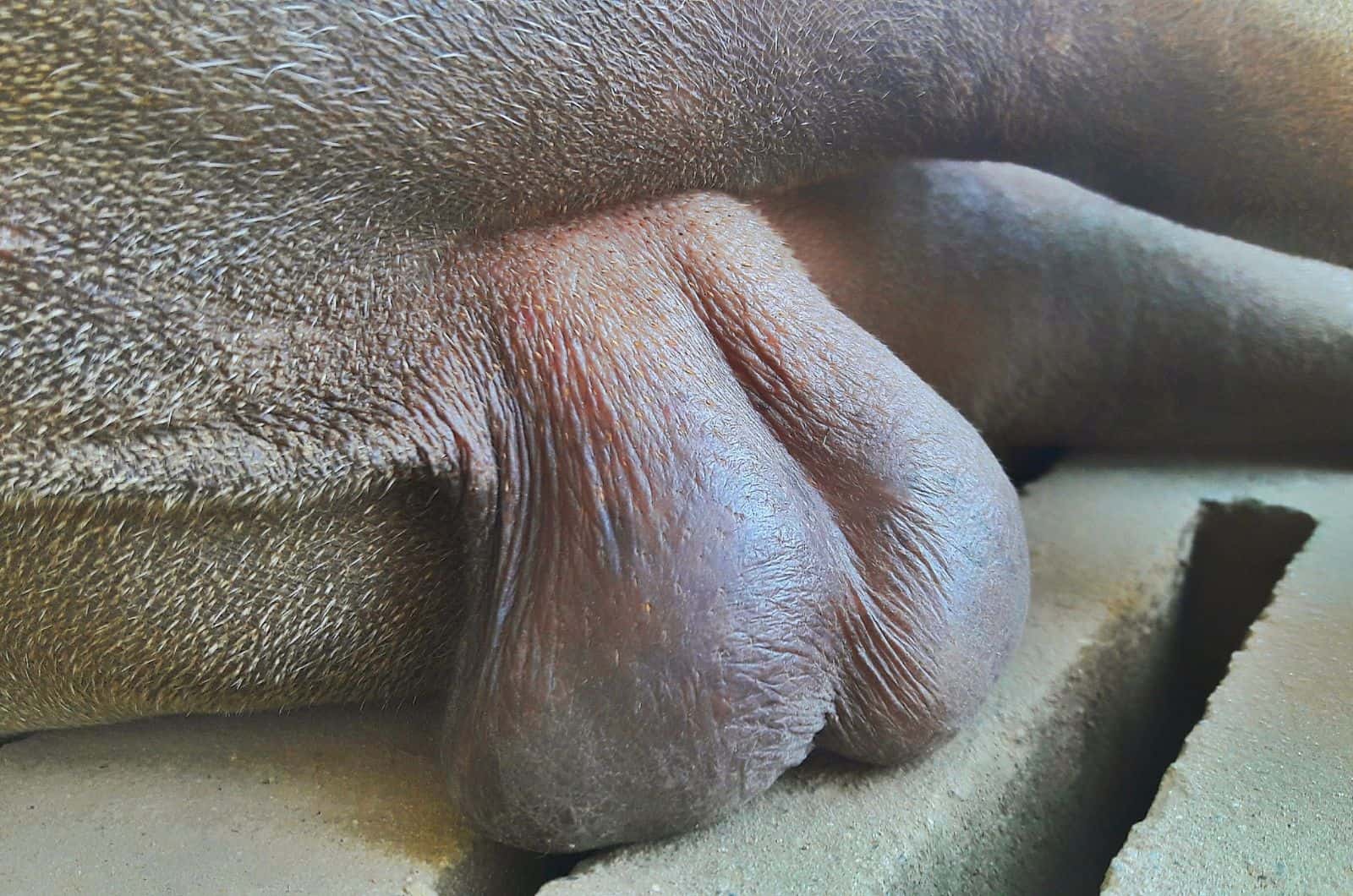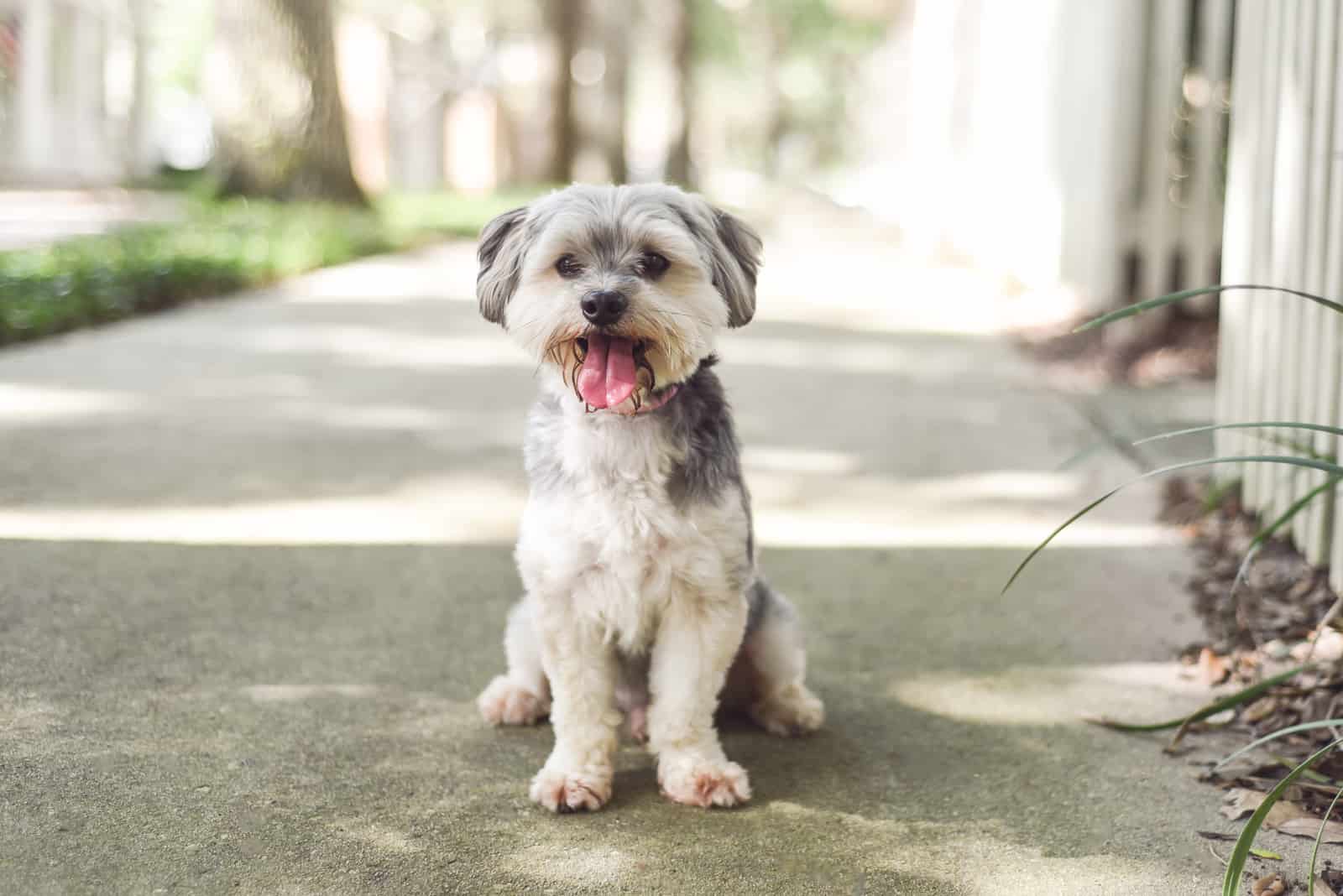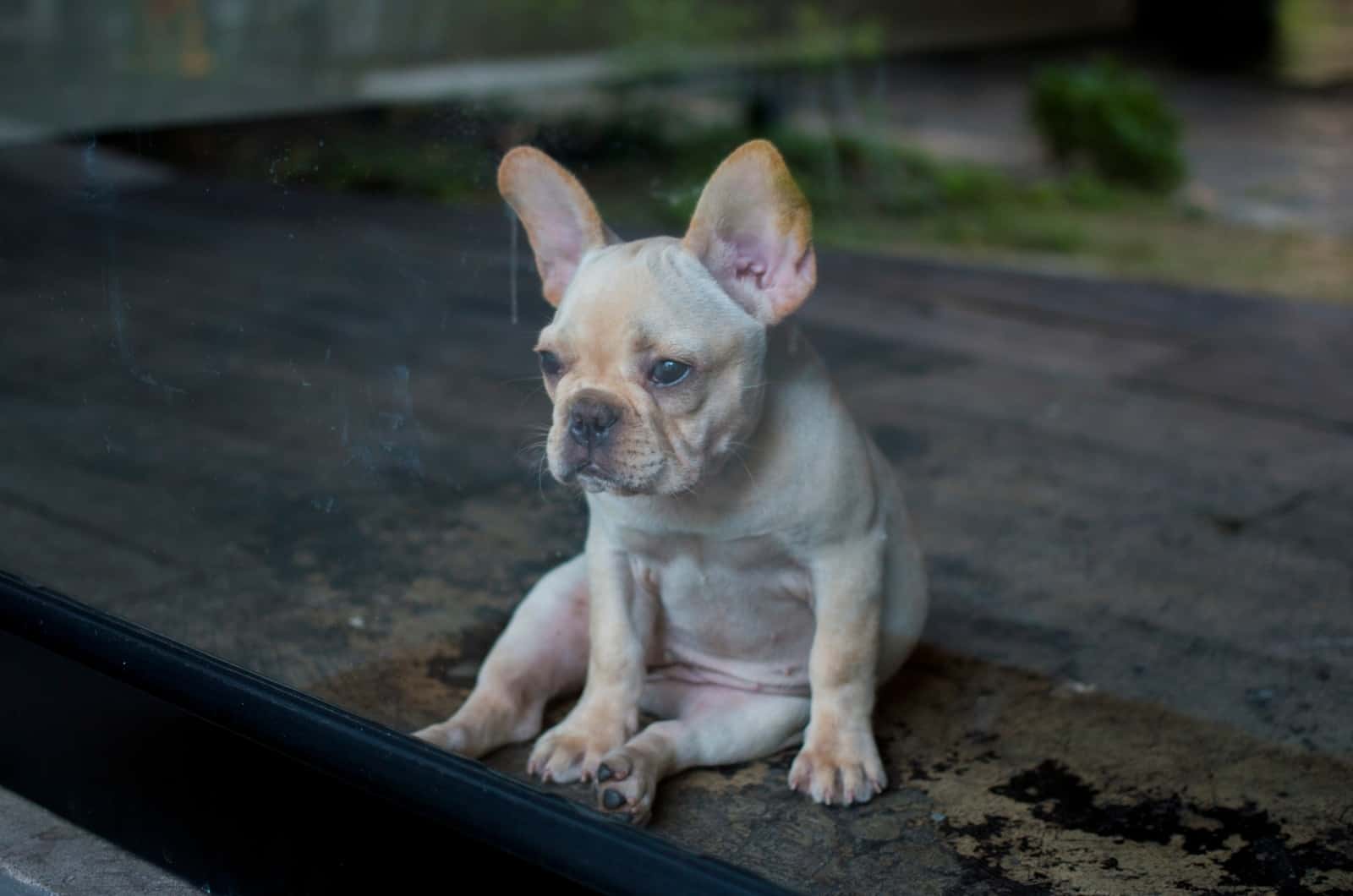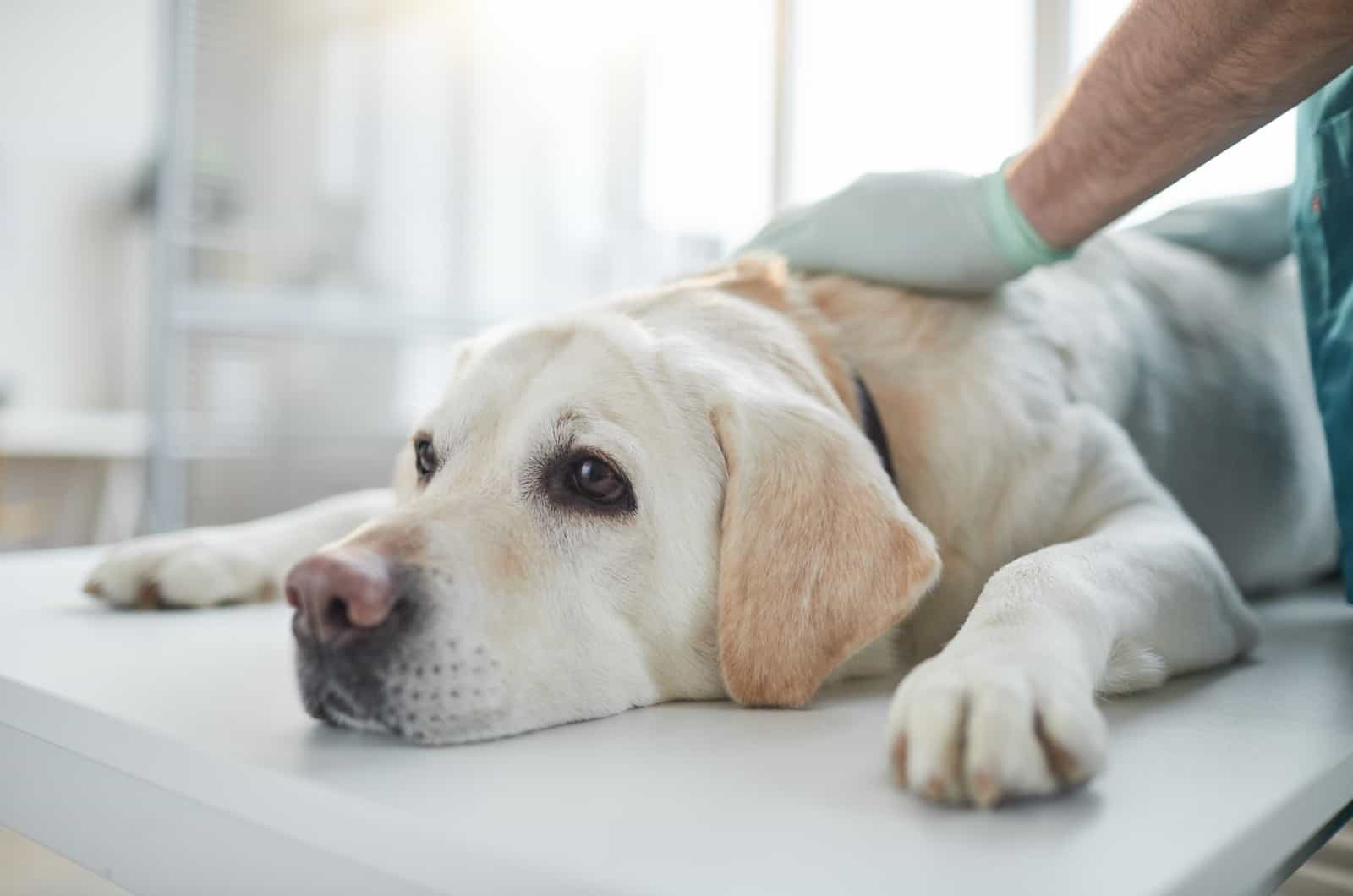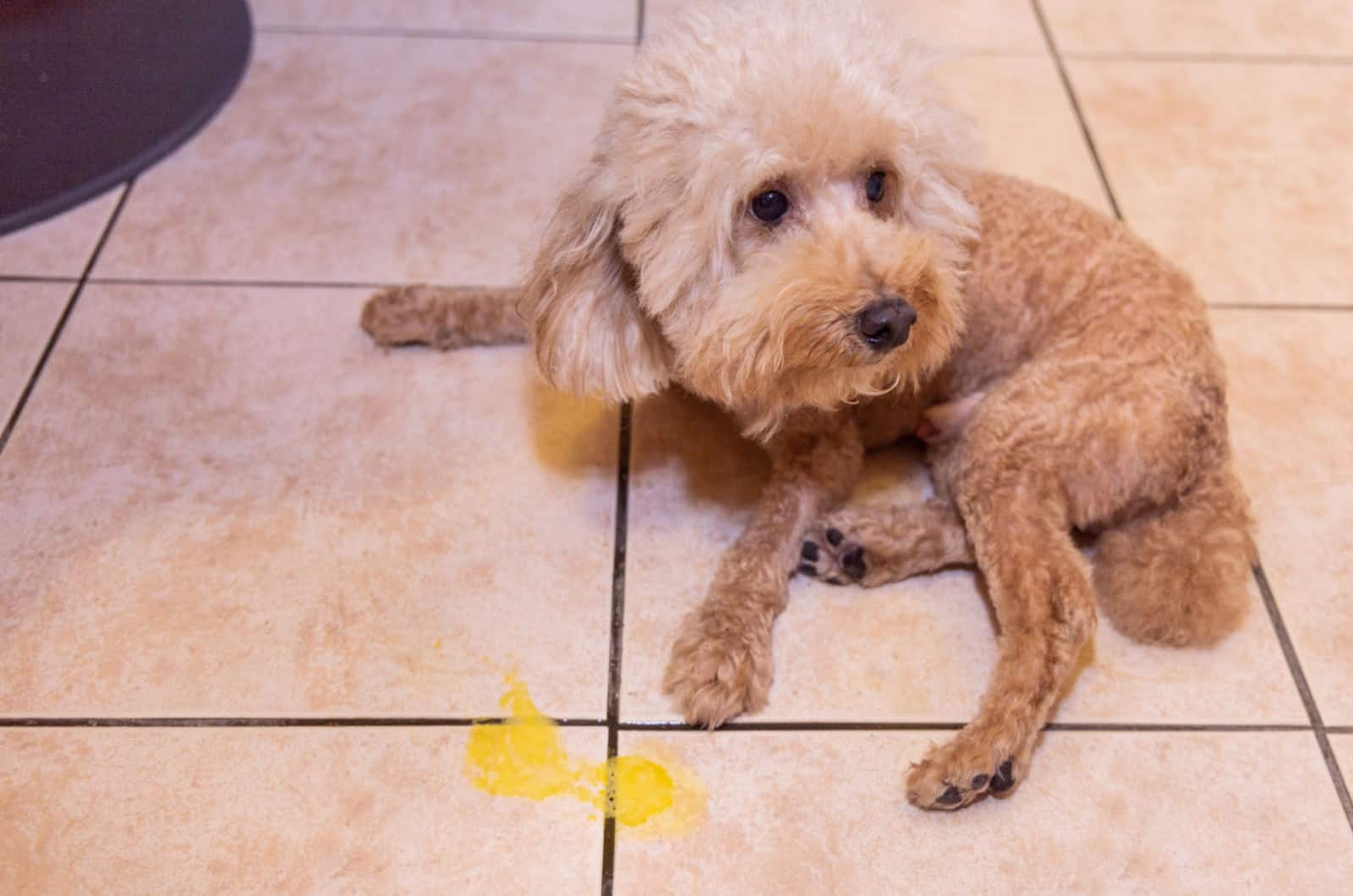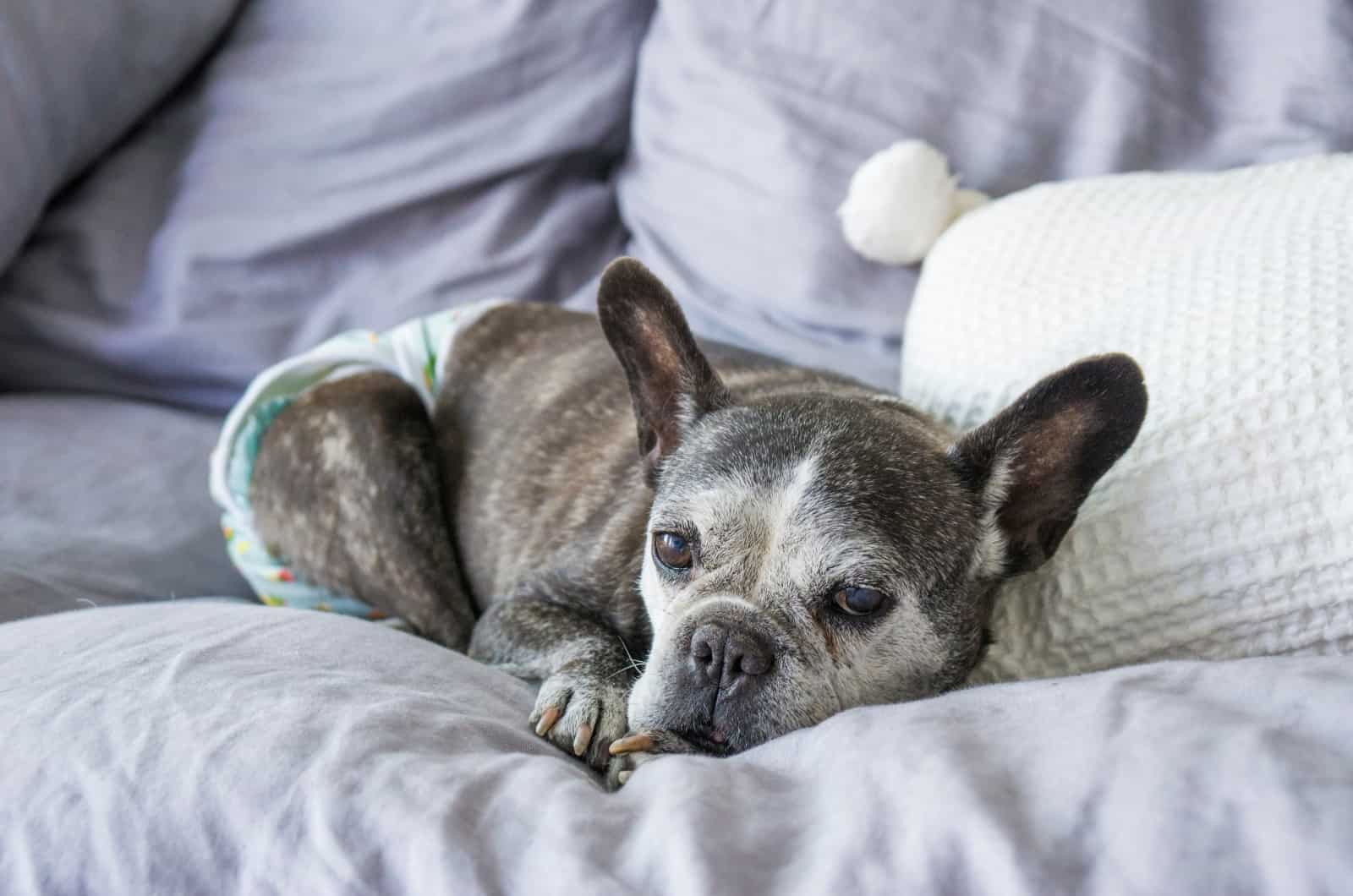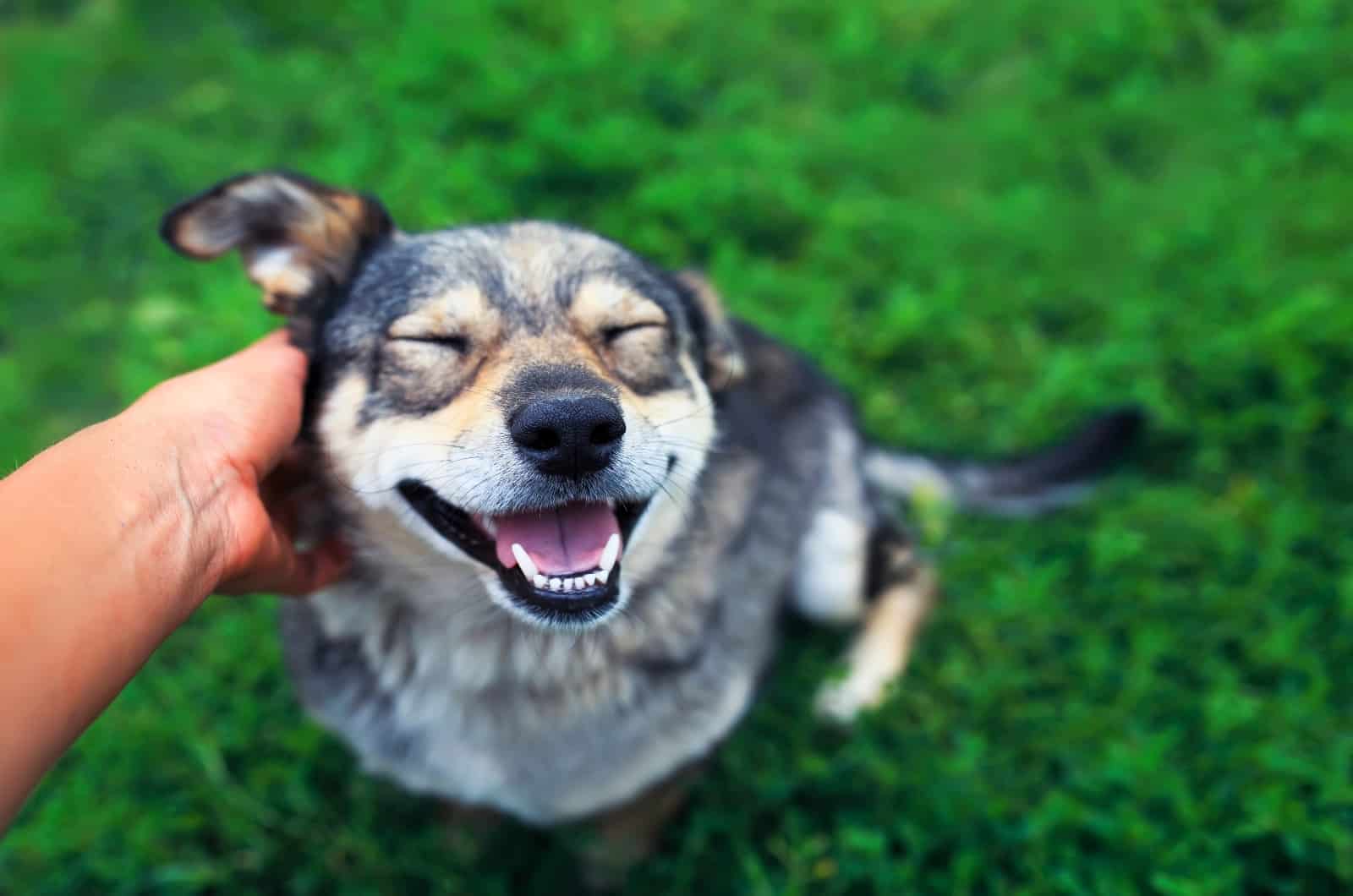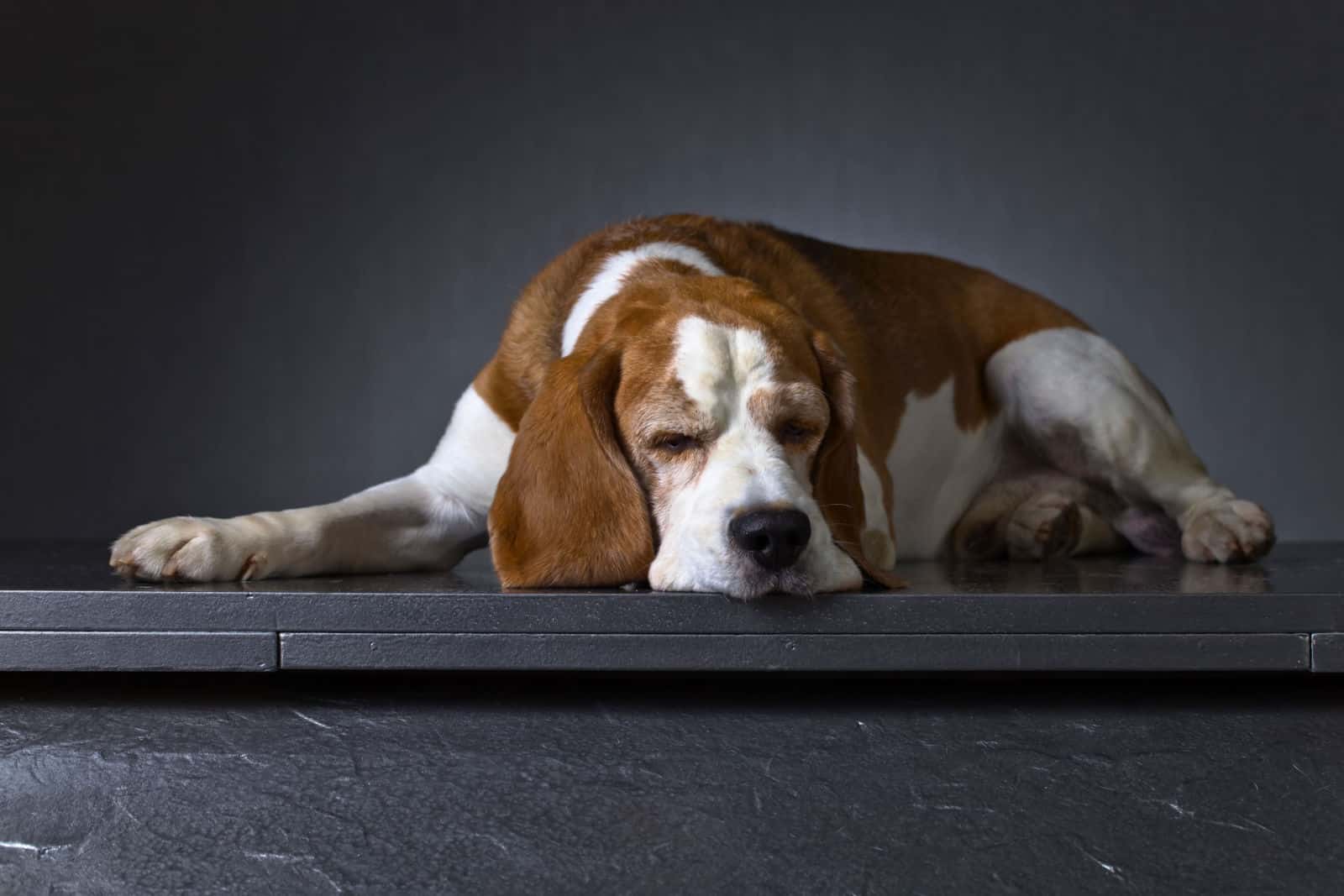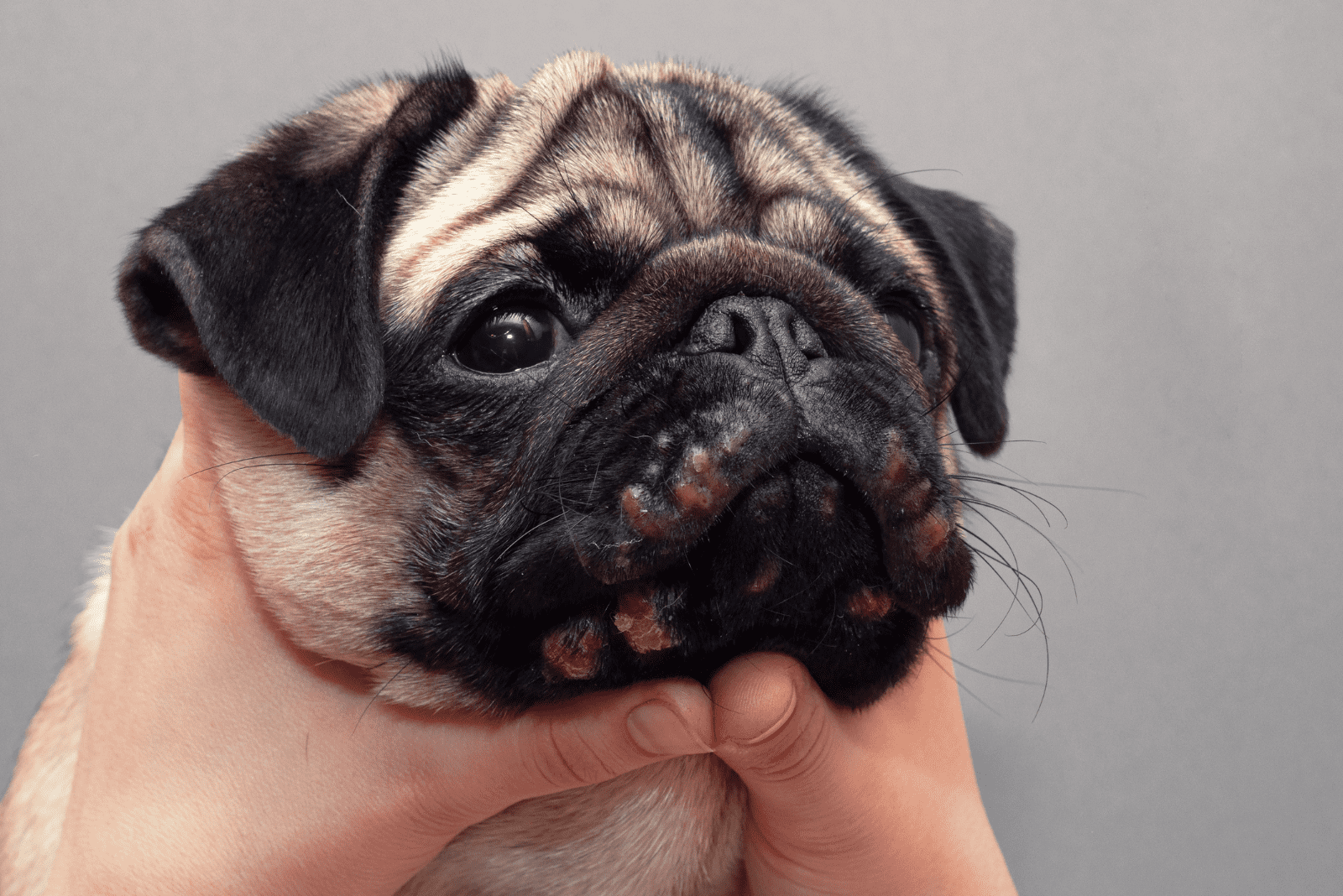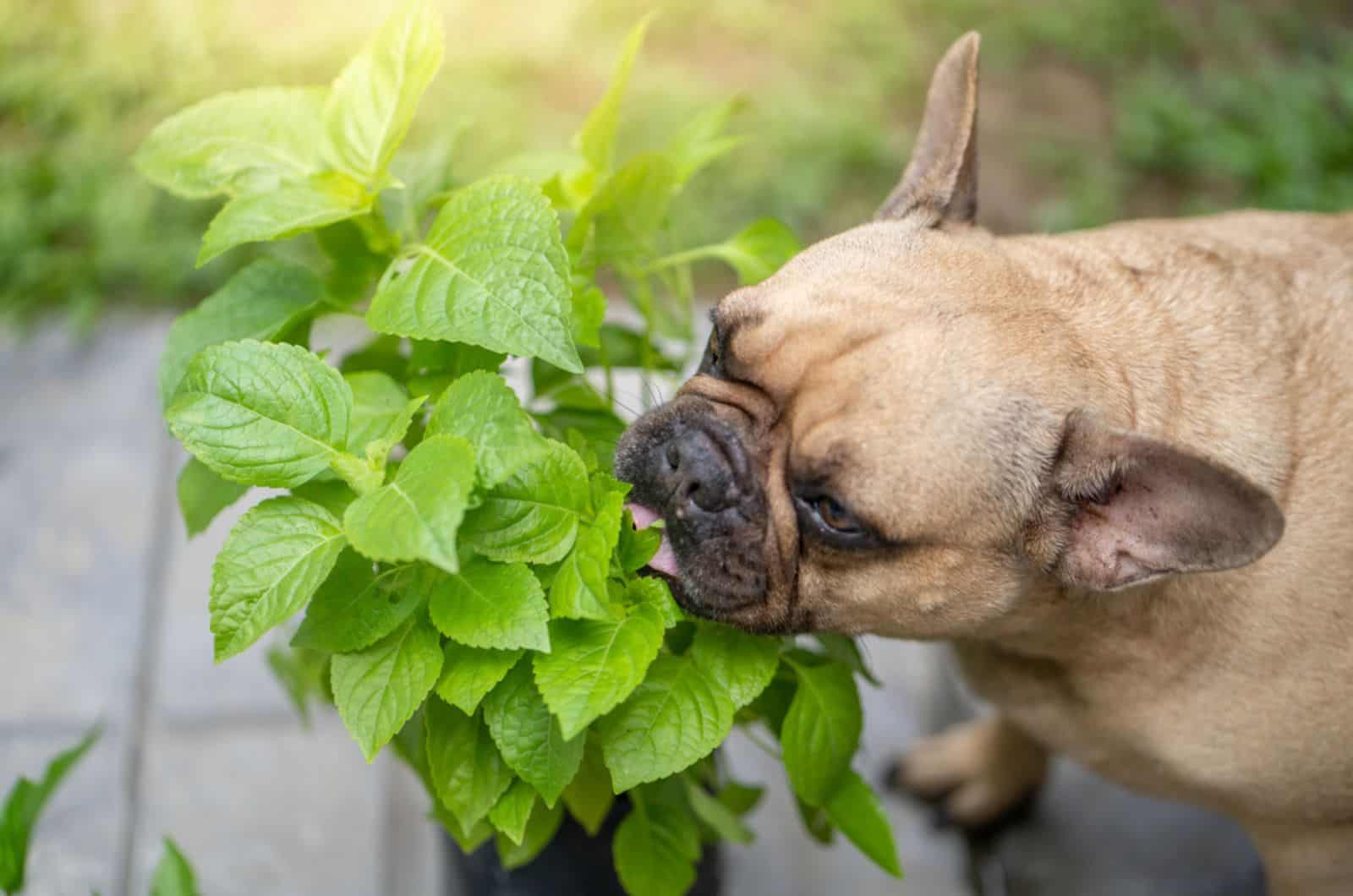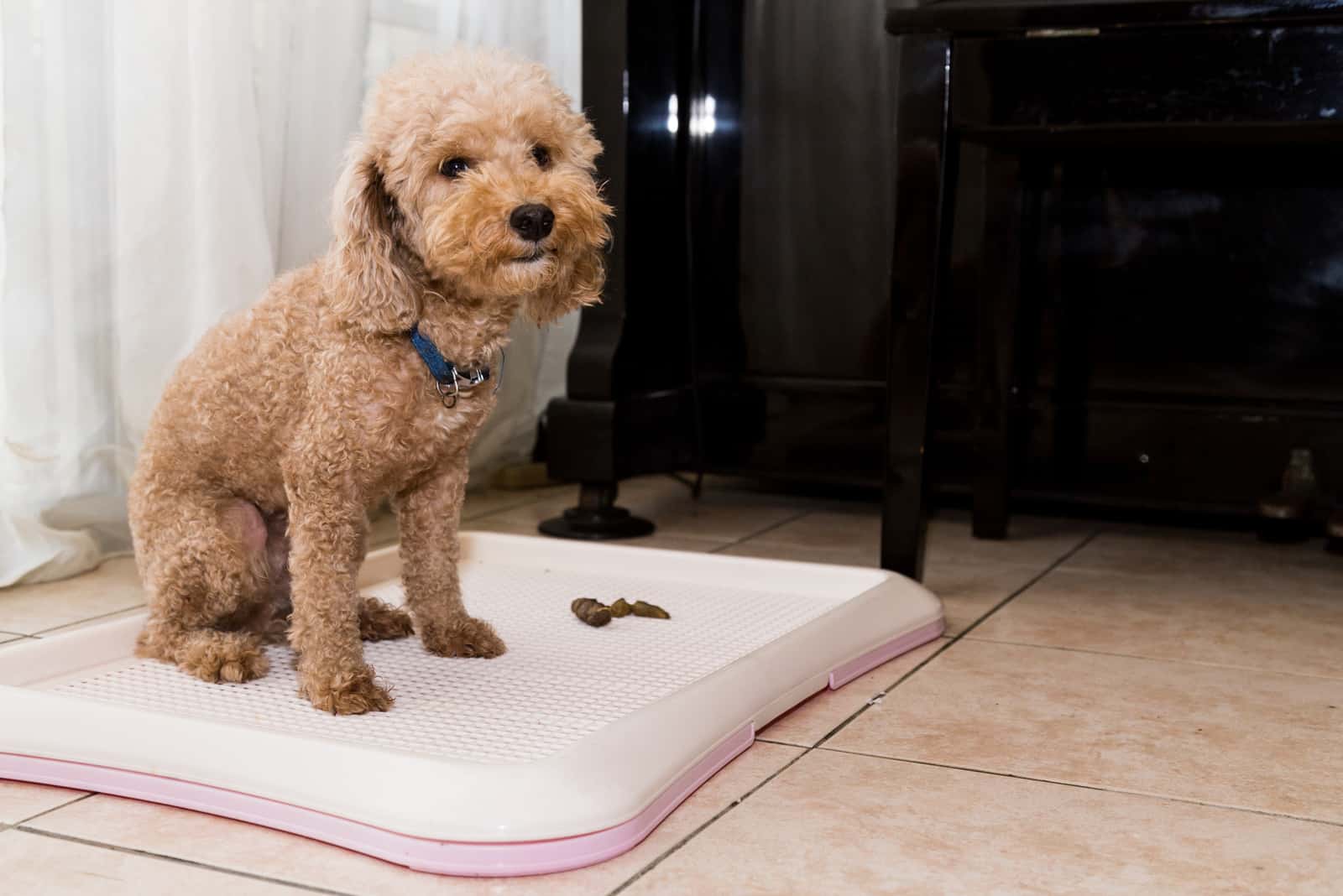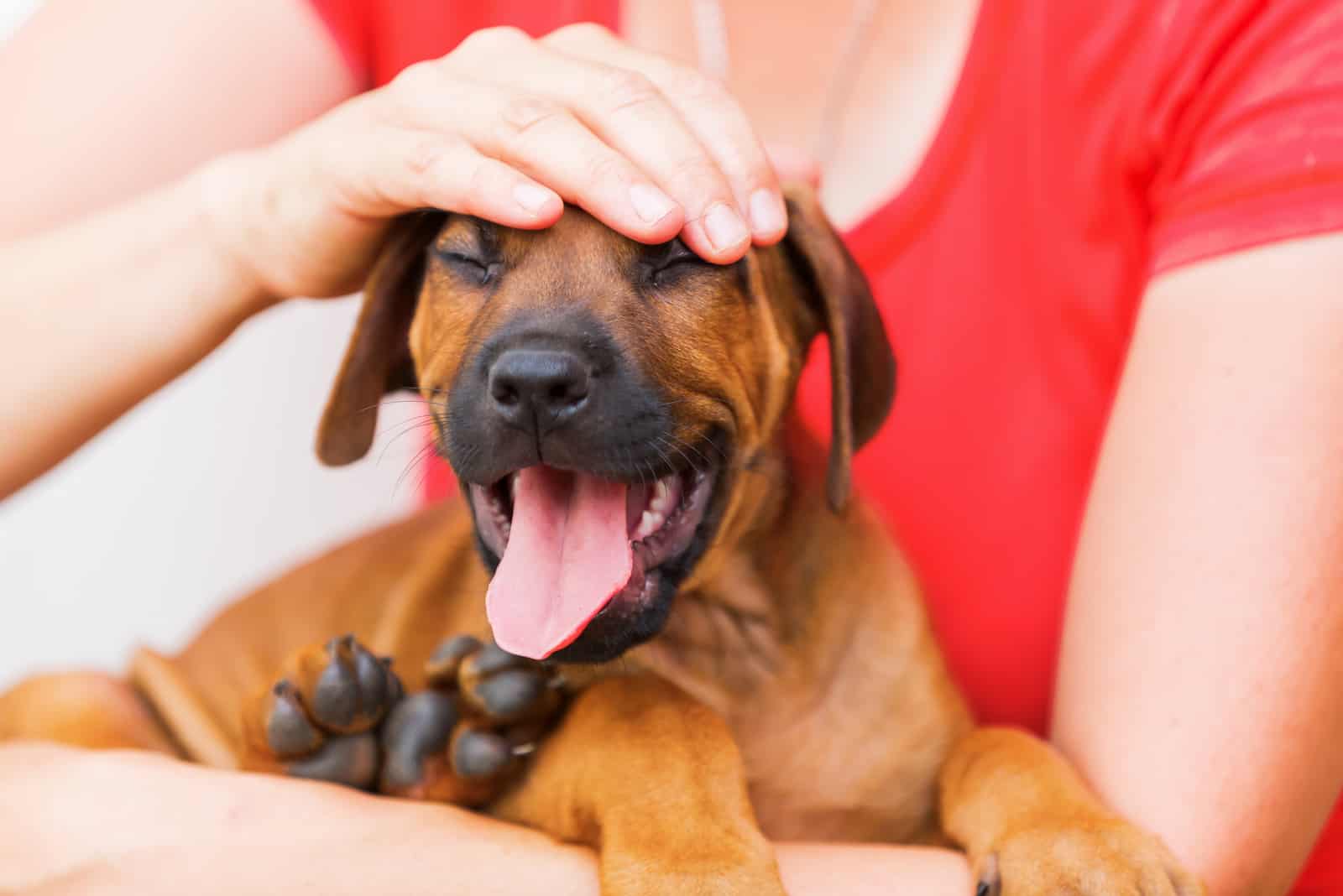Poop. It’s not fun to talk about it, isn’t it?
I know none of us thinks about what stays behind number two, especially not if it’s about our dogs. But, that should be changed.
Your dog’s poop can tell you a lot. And, if you two experience puppy diarrhea at night, that’s something that should be treated immediately.
Puppy diarrhea can happen because of lots of reasons.
Let’s jump into the matter and answer the question that’s bothering all dog owners.
Why Does My Puppy Have Diarrhea At Night?
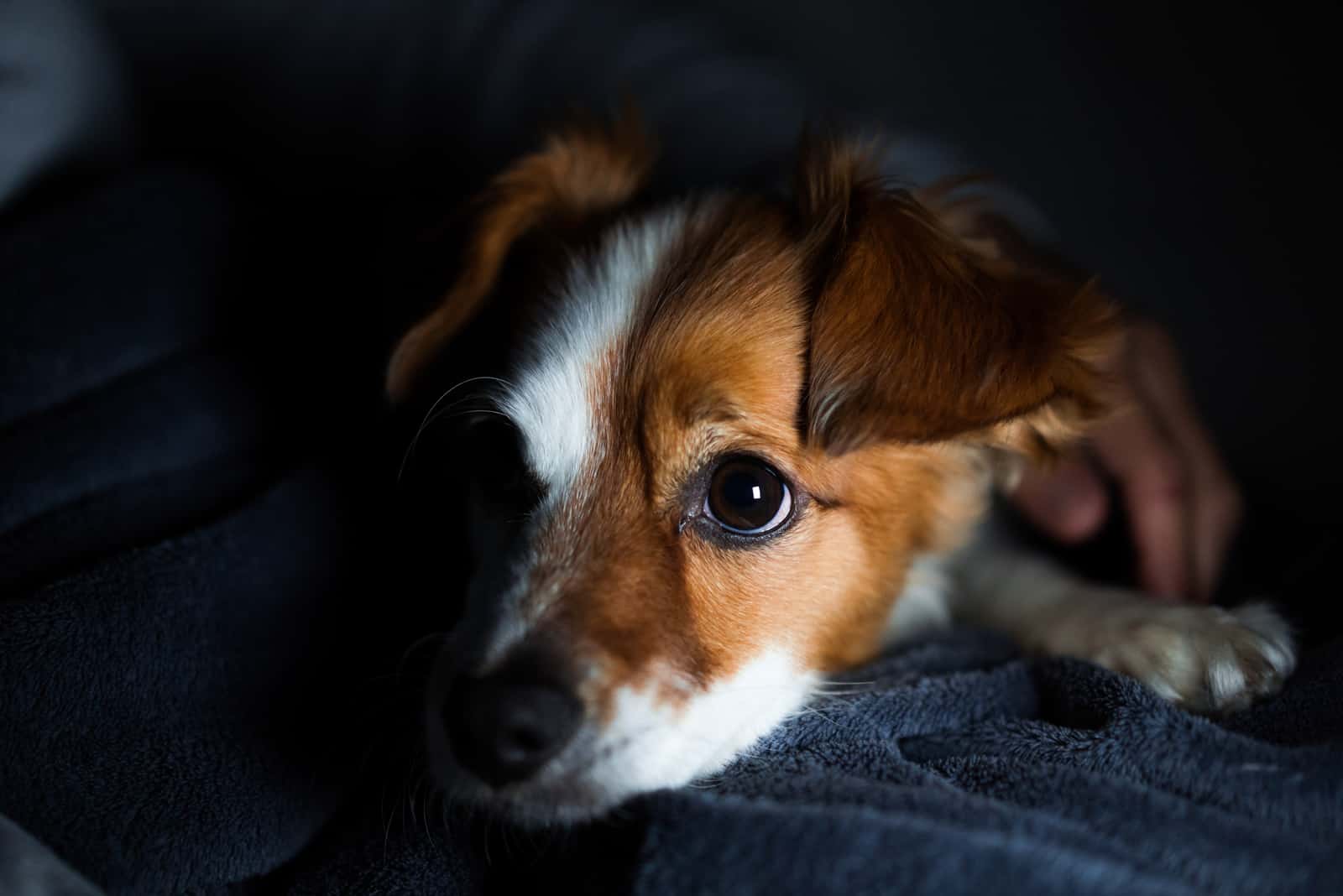
Puppy diarrhea at night isn’t something that happens without a firm reason. Your doggy’s fecal matter can be a clear sign that something’s wrong with your buddy. Whether it’s dehydrated and it’s rock hard, or loose stools are happening, they need to be treated.
But, how do you react when your puppy experiences this sudden change? What do you do if your dog gets the runs all of a sudden?
The first thing that every dog owner who cares about their dog’s health must do is not let things get solved on their own. Trust me, they won’t. Leaving diarrhea untreated will lead to other, more severe issues like dehydration, fast breathing, disorientation, sleeping problems, melancholic behavior, seizures, etc.
What you need to do is question yourself a bit. What was your dog eating? Did he ingest a foreign object? Was he nibbling on its own feces, dead animals, or something rotten? Did you change your dog’s diet?
All of these can be a reason why your dog is experiencing diarrhea at night.
I would recommend you stay with me and keep on reading to learn about the most common factors that cause diarrhea with dogs.
Better to be prepared than sorry!
Dietary Changes: Can They Cause Dog Diarrhea At Night?
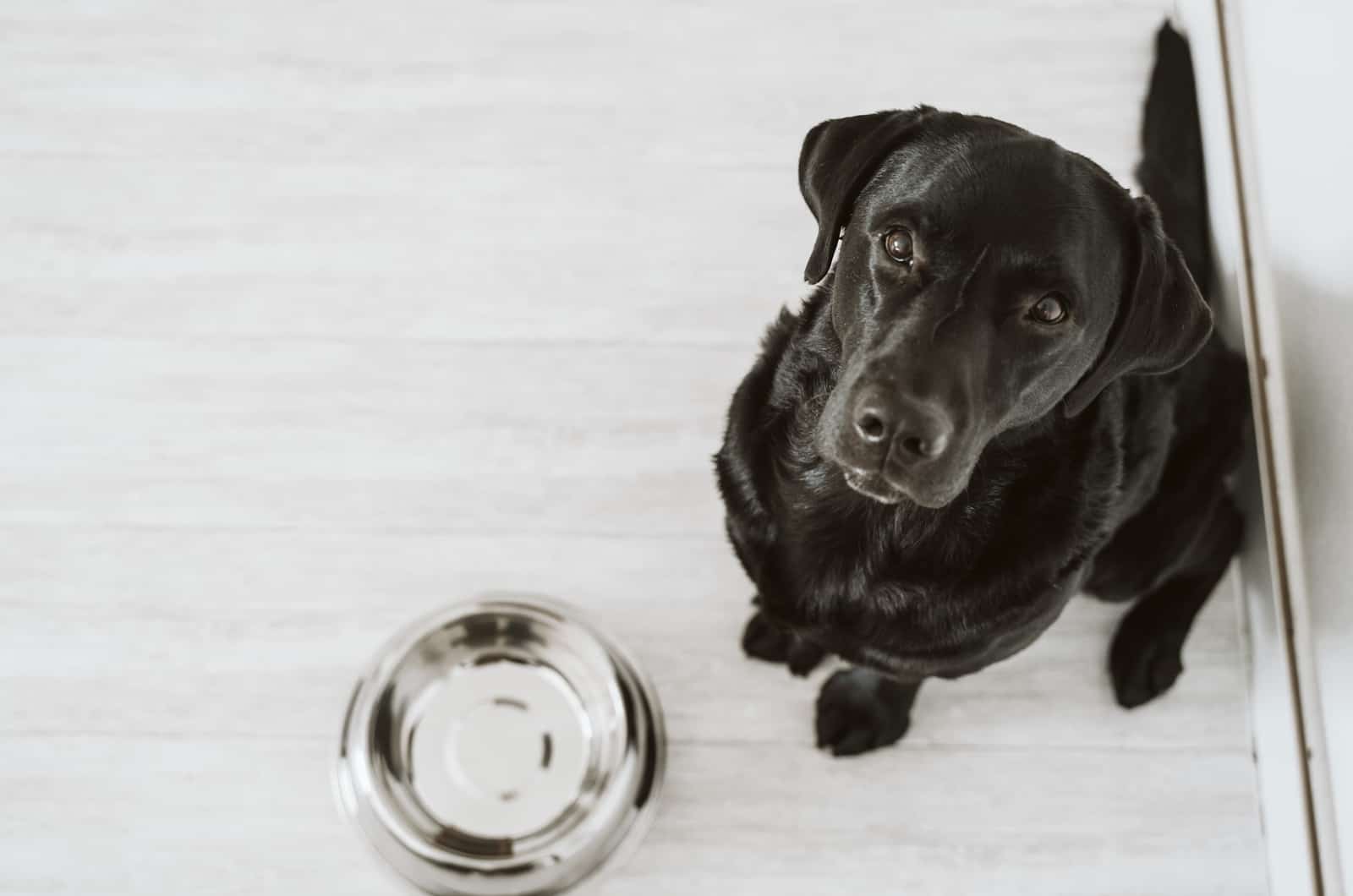
Our intestinal tract is very sensitive to severe changes. Our dog’s tract works the same way. No one will easily tolerate dietary changes that happen all of a sudden.
When the stomach growls in the middle of the night, chances are there will be a messy situation. This happens especially when your dog has a late meal.
Luckily, stomach issues are the least severe of all reasons why puppy diarrhea happens. But, even they should be prevented.
The biggest reason behind dietary-change diarrhea is the sudden transition. Each transition from one dog food brand to another should be done gradually. This process should last at least one or two weeks.
You should substitute a part of your dog’s current food with the new kibble you’re trying to introduce. Increase the amount of new food every couple of days until the whole meal consists of the new brand.
During this time, you will have a chance to see if that food works out for your dog.
If a dog is sensitive to these dietary changes, he or she will experience symptoms like cramps, diarrhea, or vomiting.
Transition To A High-Quality Food
What you need to be careful about is switching from a poor-quality dog food to a better one. Many puppies adopted from local shelters are on generic dog food. There’s really nothing special or nutritious about it.
So, when you bring the puppy home and want to make its new life a whole lot better, go tiptoes around their food. Get a bag of the kibble used in the shelter and gradually mix it with the food of your choice until the puppy accepts it.
This is something that a lot of dog owners don’t realize, but it can cause so many issues and messy situations.
Dietary Indiscretion: What Is That?
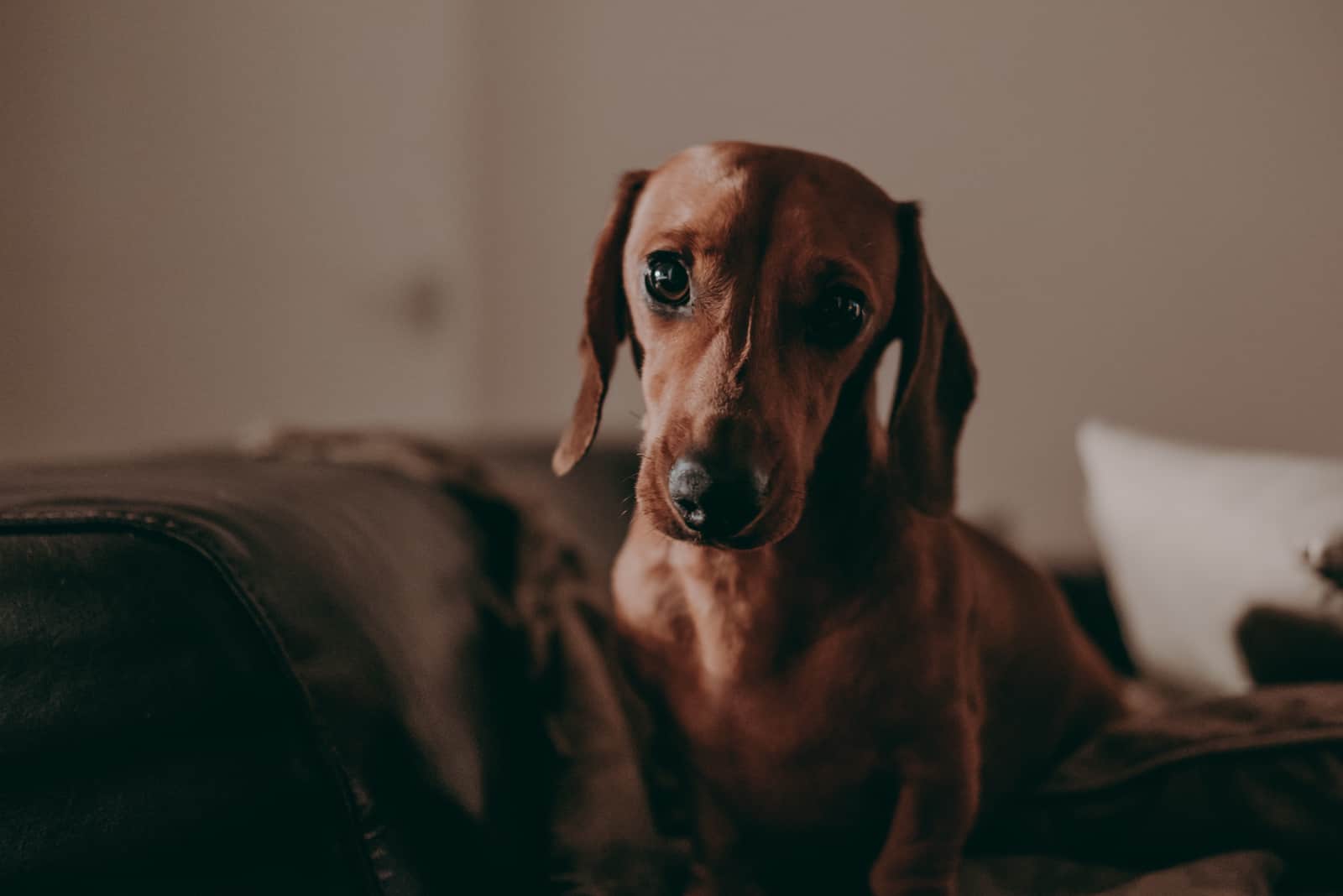
A dog’s new diet isn’t the only issue causing diarrhea, speaking in terms of dietary needs. Your puppy can get an upset stomach after eating something that was not supposed to be eaten.
Dietary indiscretion is a condition determined by a dog’s ingestion of things that aren’t food, i.e., meat gone bad, stones, trash, food scraps, dead animals, etc.
You may think: So, what? Other dogs eat funny things, including food scraps!
But, that’s not okay in any way.
You see, dietary indiscretion can be caused by the owner and the dog. If you feed your dog table scraps, or questionable or expired food, you’re risking contamination and severe bacterial infections.
Once bacteria and toxins enter the dog’s blood, they will cause a condition known as the garbage gut.
Whether they come from spoiled food or dead animals, bacteria and toxins that enter the dog will cause severe issues and even lead to life-threatening conditions if not treated.
Dietary indiscretion is still quite common. You can recognize it if your dog has symptoms like vomiting, a sudden appetite loss, lethargy, and, of course, puppy diarrhea at night.
So, next time you see your dog hanging out next to a dead squirrel or roaming through trash cans, think of the consequences. No, dog’s won’t be dogs. Don’t have that attitude. What’s wrong is wrong, and don’t be one of those puppy pawrents who is okay with everything.
Intestinal Parasites: Is This The Most Common Reason For Puppy Diarrhea?
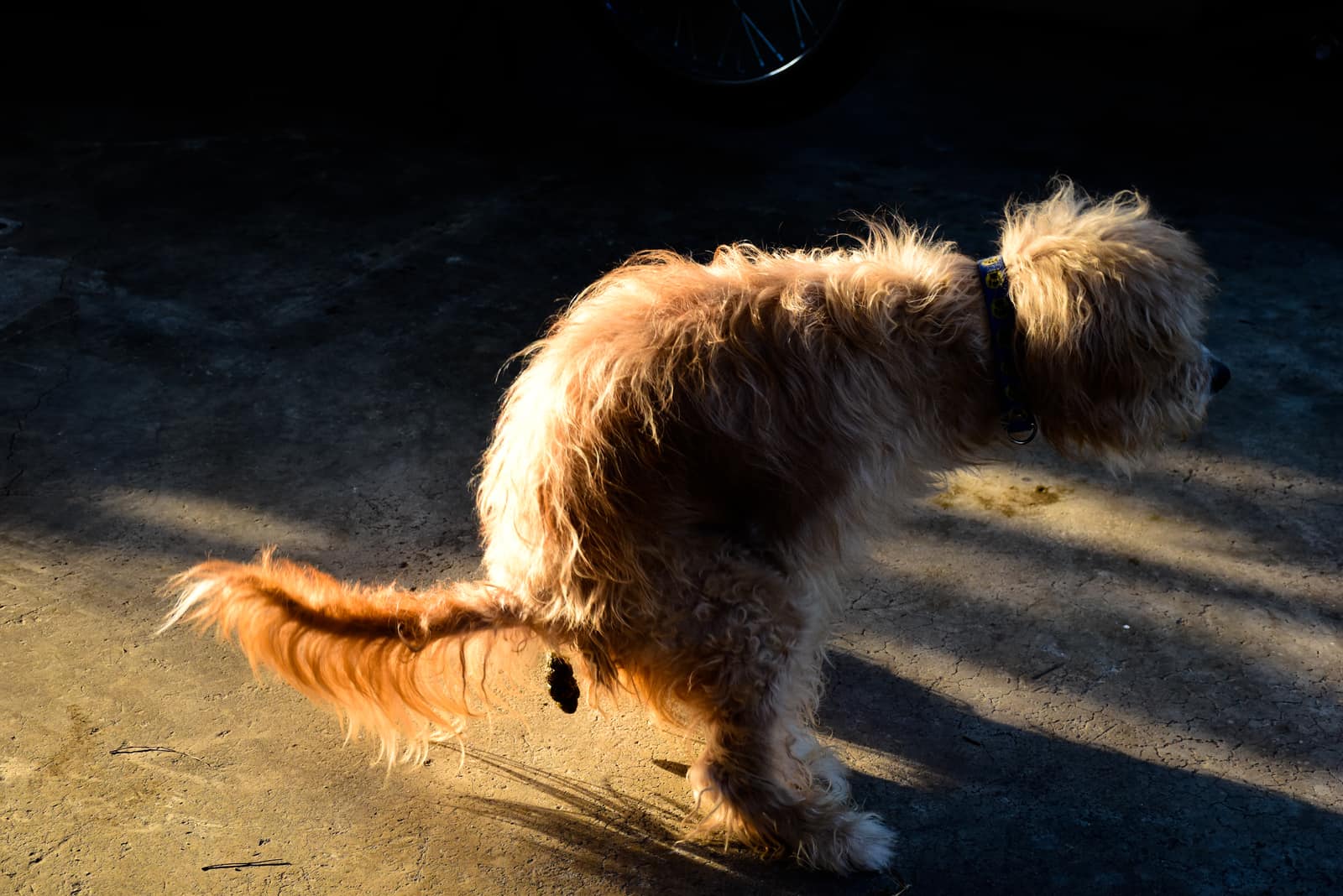
One of the most common causes of diarrhea at night (and at any other part of the day) is parasite infestation.
This is something that the vast majority of dogs experience, and it’s not a condition you should be worried sick about. Of course, I always recommend treatment before things get too serious.
Dogs are curious creatures. They meet the world using only two of their senses: taste and smell. Sure, puppies rely on their smell, but their sense of taste leads the way. You can find proof of this statement in the fact that puppies will nibble on anything, including stuff that carries potential threats.
Parasites are found usually with puppies, but dogs of older age can also get them. Treating for hookworms, whipworms, coccidia, etc. isn’t easy, but consistency is the key to success.
Roundworms
One of the most common parasites is the roundworm. Like with other parasites, this pest usually strikes puppies. However, adult dogs can also catch this worm.
The fastest way of getting this worm is inheriting it from the mother.
Giardia
Giardia worms usually affect puppies that are younger than six months.
This is a pretty severe condition since it can affect humans, too!
Your puppy will be all out and about, exploring nature with you, and the next day, he’ll be having diarrhea all night long. The reason? That puddle of old, stagnant, contaminated water he took a sip of!
Who’d know something like this could happen!
To keep the giardia away from you, clean and sanitize your home, and rush your puppy for a deworming treatment.
Hookworms
Yes, they’re exactly what their name says they are: worms with hook mouths!
These annoying parasites cling onto a dog’s intestines and cause slow, but steady bleeding. Having hookworms can lead to severe anemia.
This is a condition that must be prevented by regular checkups since the puppy can either get it from its mom or eat hookworm larva.
Thankfully, good breeders will always provide deworming treatments before the puppy gets adopted.
Can Stress Cause Nighttime Diarrhea?
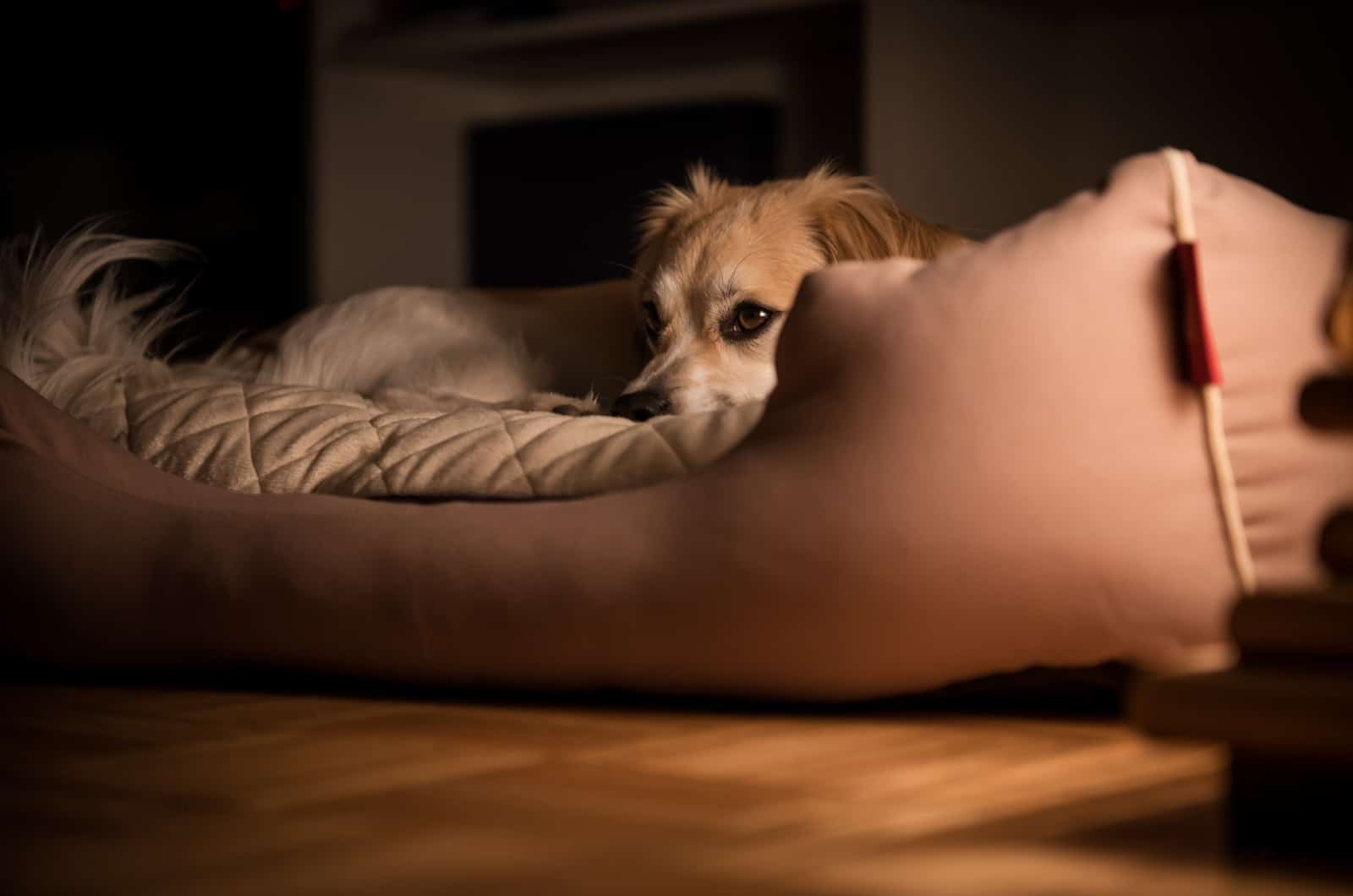
Believe it or not, stress is the #1 reason behind numerous health issues, including puppy diarrhea at night.
Unfortunately, stress can’t be prevented completely because you never know which situations cause it, even in the slightest amount.
But, we can try to prevent traumatic situations like constant traveling, moving around, or introductions to unknown people and animals all the time.
Puppies find loud noises very disturbing, and they, too, can cause stress levels to rise.
Once stress levels are high enough, a hormonal disbalance is in order, which affects the dog’s immune system. Such dogs are now prone to various health conditions.
And, yes… stress can be a massive trigger for puppy diarrhea at night!
RELATED: How to clean diarrhea out of carpet
How Do Infections Affect A Dog’s Digestive System?
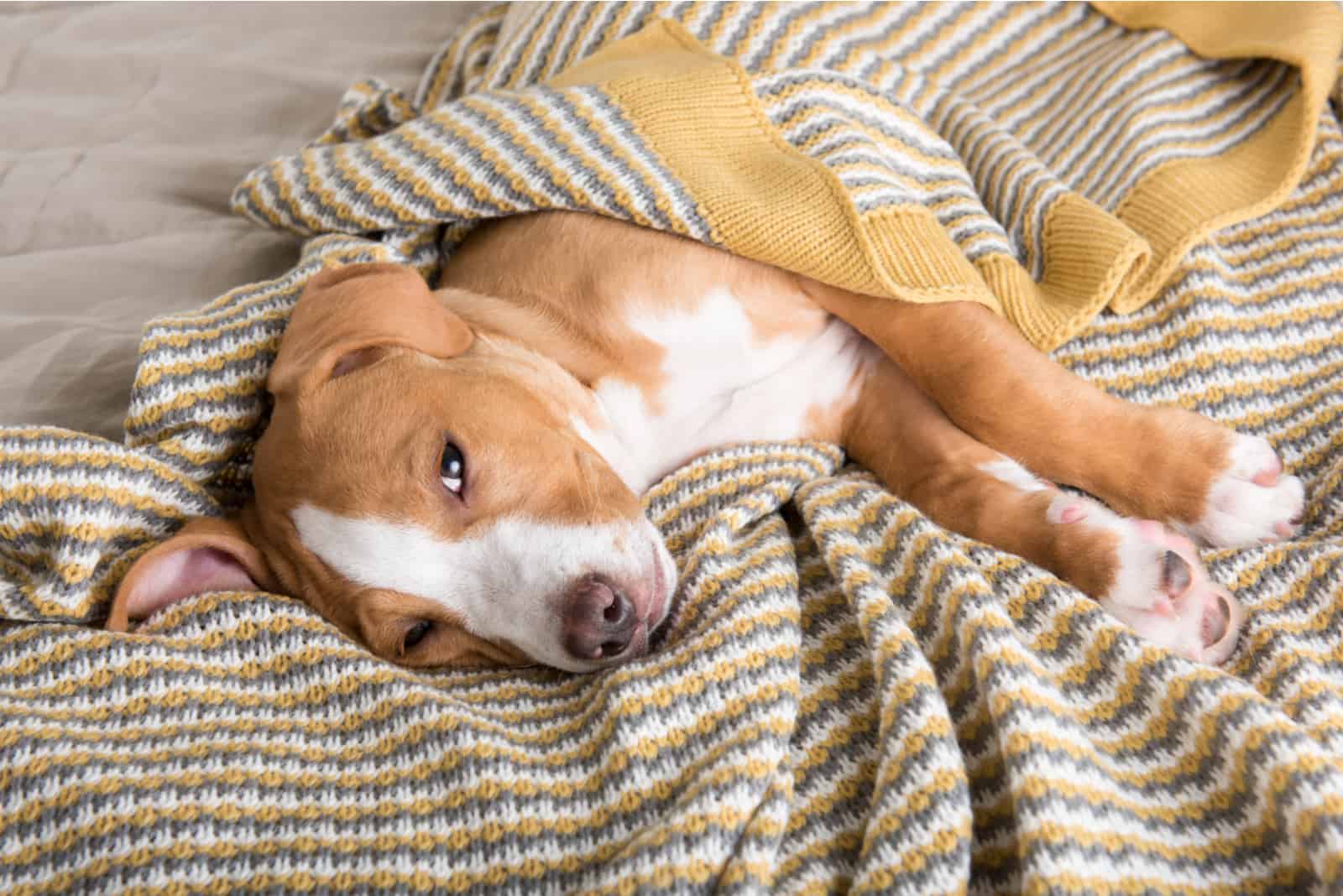
Infections are something that affects not only a dog’s bowel movements, but also it’s overall health.
Let me be completely honest with you: infections are not easy to fight.
Consider you and your four-legged buddy lucky if you end up with only mild symptoms of diarrhea and vomiting. Infections, whether they’re bacterial or viral infections, can be fatal.
Bacterial Infections
The most common way for your Fido to get a bacterial infection is through eating some bad meat or a dead animal. That’s right! It’s not funny at all to see your pup nibbling on a dead rat.
Dead animals and spoiled meat carry bacteria like salmonella, bordetella, or e.coli. All of these are hard to treat and pretty stubborn, meaning you won’t get rid of them easily, and they may even come back after some period. Puppies, for example, are very prone to parvovirus.
Bacterial infections are followed by symptoms other than diarrhea, including sudden loss of appetite, vomiting, and blood traces in the stool.
Trace back your steps and check if your dog ate something bad. It can even be a stray piece of salami found in the park! Bacterial infections can strike at any time, and the only prevention is controlling what your dog swallows.
Viral Infections
So, the mentioned infections are pretty severe. But, what’s even more scary are viral infections. And, no… I’m not speaking of colds or flus with dogs.
What I’m trying to say is that some dogs can catch viruses that carry a rough clinical image.
The biggest viral threat for all dog breeds, sizes, and ages is canine distemper.
Your dog might catch this viral infection if it spends too much time outside and maintains contact with wild animals. Sadly, raccoons, our nighttime visitors, are the biggest carriers of canine distemper.
Once your pup catches this disease, it will exhibit symptoms like coughing, fever, runny eyes, a snotty nose, etc. Also, symptoms can be pretty severe and lead to seizures and even paralysis!
Don’t let your dog hang out with the crew over the hedge. Raccoons, squirrels, and foxes aren’t good friends.
But, just to be sure… have your dog receive vaccination shots for canine distemper.
Can IBD Or Inflammatory Bowel Disease Cause Diarrhea?
IBD, Inflammatory Bowel Disease, or Colitis. Call it any way you want, the symptoms are the same: vomiting, diarrhea, and bloody stools.
This gastrointestinal condition affects the dog’s digestive tract and stops the absorption of the much-needed nutrients from food.
IBD is a chronic condition. Unfortunately, we can’t determine a certain cause of this disease. It may be because of parasites or some bacterial infections.
I suggest you do some reading on this topic here.
Food Allergies & Medicine-Related Reactions
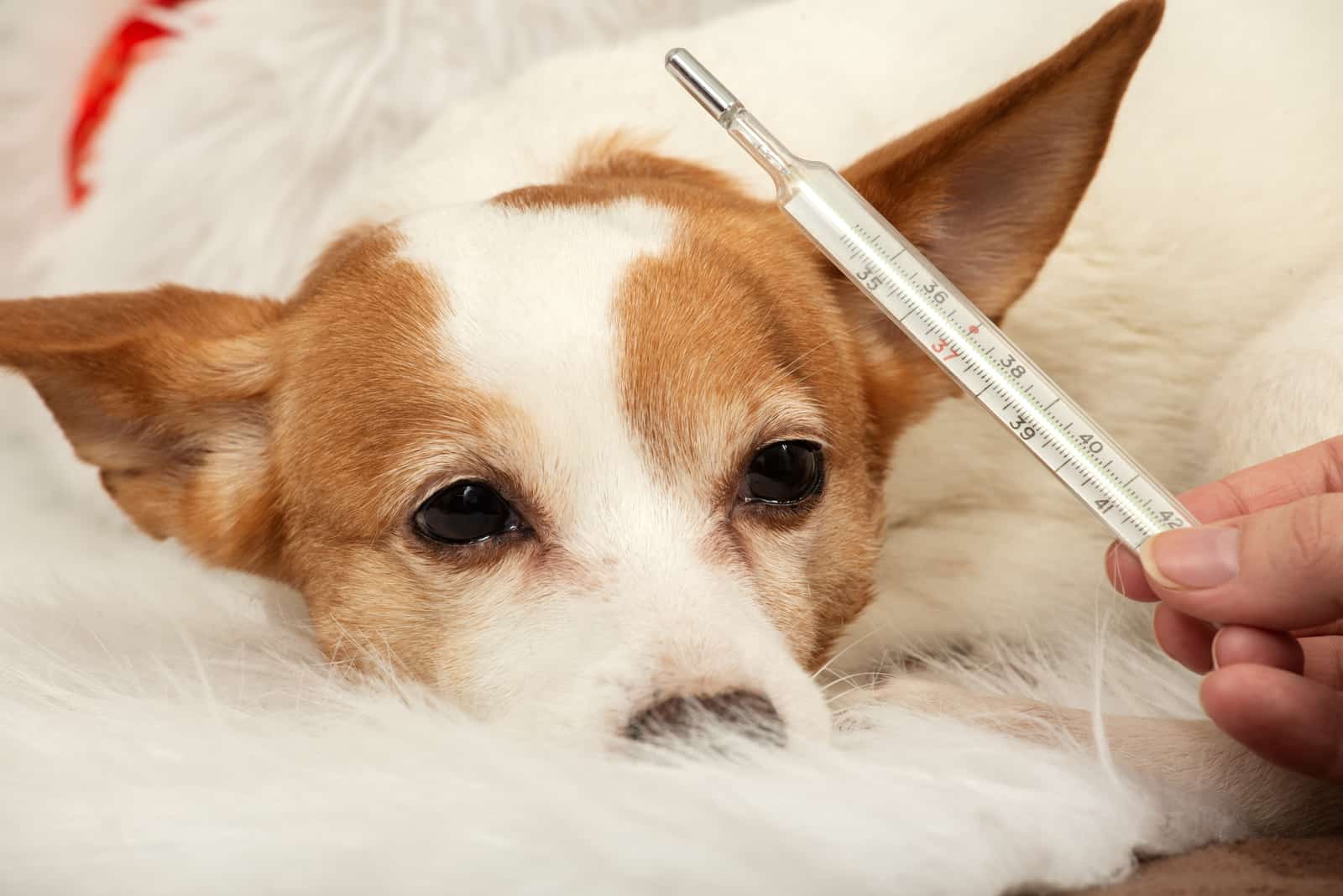
Allergies affect us all, even dogs.
Our doggy friends can experience severe allergic reactions caused by something they ate or some medicines they have to take.
All dog breeds of all sizes and ages can experience food intolerance and allergic reactions. It’s not that difficult to spot them at all! The first contact with some food usually weakens the dog’s immune system, so every next contact causes reactions.
Symptoms like diarrhea or vomiting can be a clear sign that your dog is allergic to something. Even the most common ingredients like proteins from beef, chicken, or fish can be allergens. Your pup will either react severely or he’ll experience intolerance in the form of obstructed digestion.
I suggest you put your buddy on special puppy food designed for pups with sensitive stomachs. Such recipes contain no severe allergies or triggers that may cause a reaction.
Even medications your dog is using can trigger reactions. In such cases, you should consult your vet for the proper medication that will end the side effects and do what it’s supposed to do.
When Should I Consult My Vet About Puppy Diarrhea At Night?
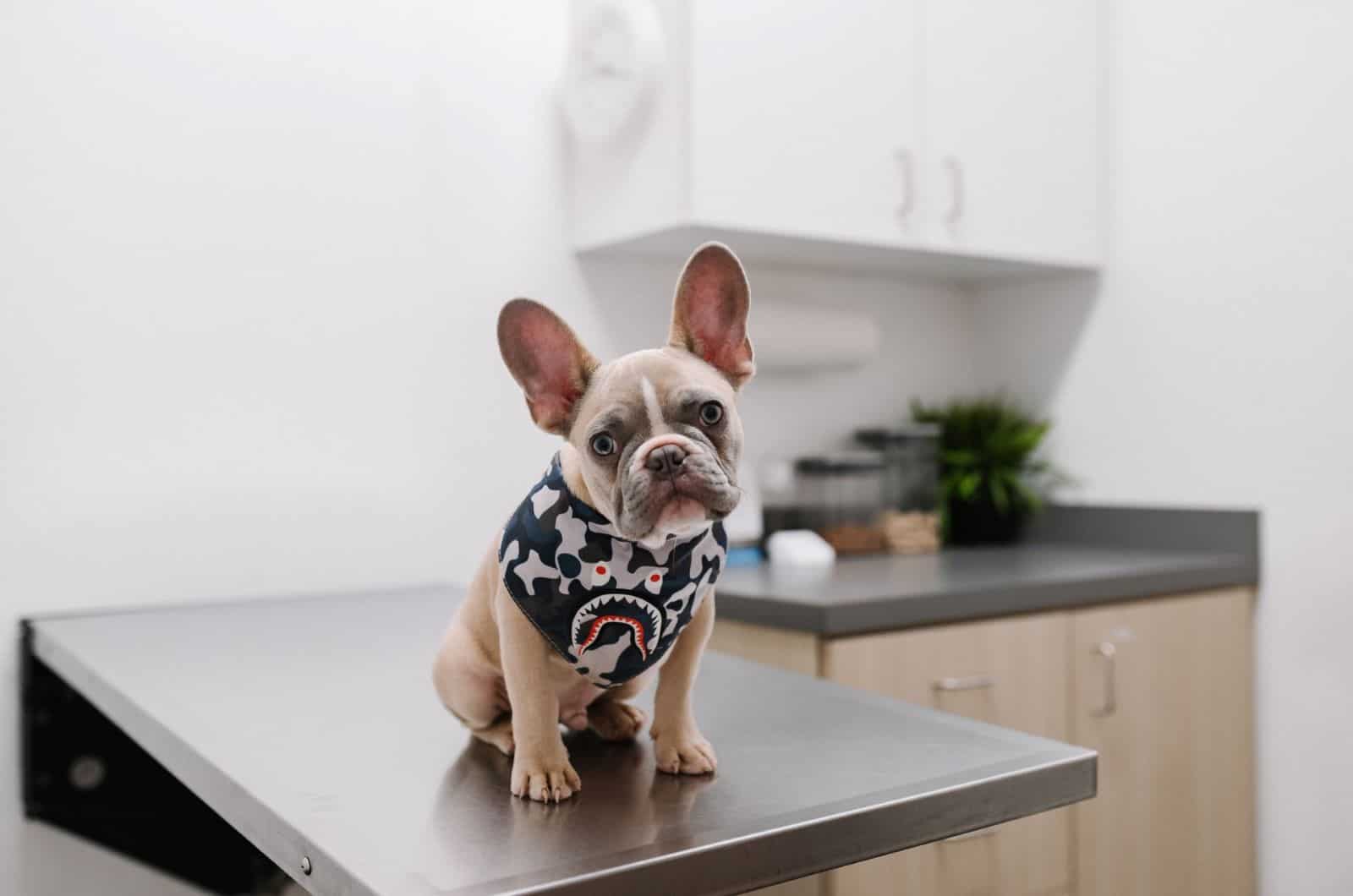
As I mentioned earlier, you should not let diarrhea get solved on its own. You must react in time to prevent further complications.
Once home remedies fail, and you notice significant changes in your dog’s stool and behavior, you should consult your vet.
Your vet should be included in the treatment if you notice bloody streaks in the stool accompanied with symptoms like vomiting or fever.
Dehydration is more severe than you think, and having diarrhea for more than three days is the fastest way for a dog to get dehydrated.
So, make sure you don’t experiment with home remedies longer than three days.
Down below, you will find some remedies that could help stop the runs and get your dog back on track. Remember, if one thing fails, move over to the next one and don’t waste your dog’s time.
Which Home Remedies Will Help My Puppy To Stop Having Diarrhea?
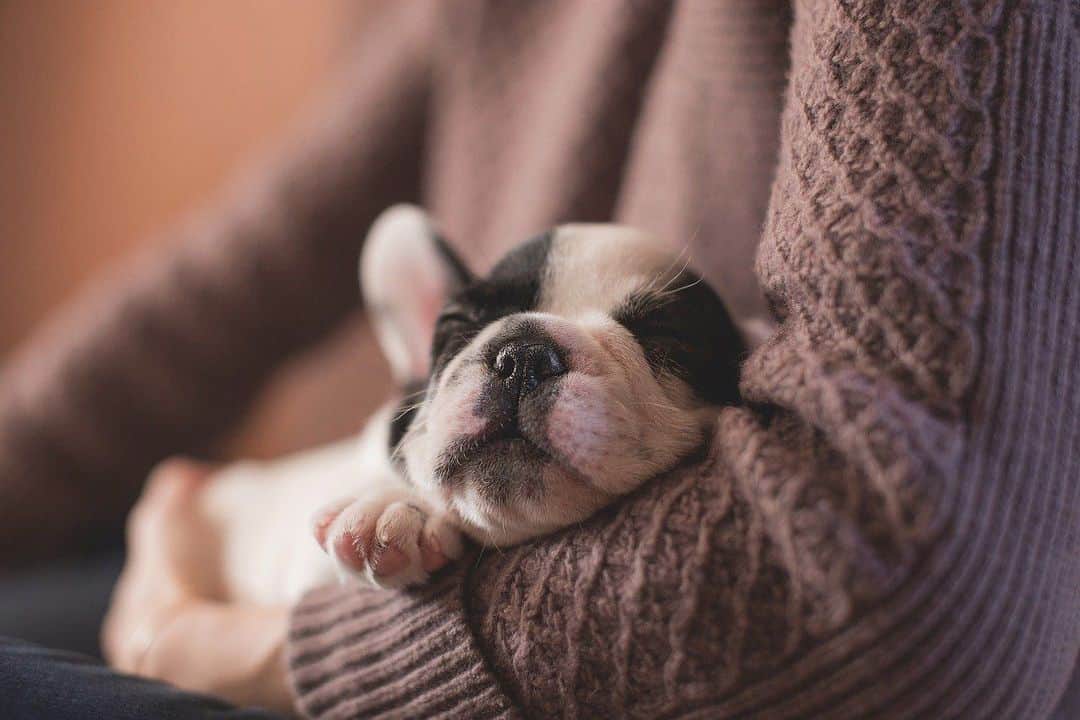
Photo from: @pet_house_22
I know this may sound harsh, but the first thing you must do when your puppy gets diarrhea is put it on a strict regime without food. Yes, that does sound a bit odd since puppies can eat a lot, but the more food you’re pushing your puppy to eat, the more sensitive the stomach will get.
Give your puppy’s stomach some time to recover, and make sure your dog takes in plenty of fresh water to stay hydrated.
Another quite helpful trick once the runs seem to slow down is introducing a bland diet. Some white rice or bland turkey should be fine as a first meal after diarrhea. Mix these ingredients with the dog’s regular food in the following days.
I recommend you introduce probiotics into your dog’s diet if he seems to experience these episodes a lot. Also, don’t be afraid to give your dog mint tea. It’s a healthy remedy that calms down an upset stomach with we humans.
Conclusion
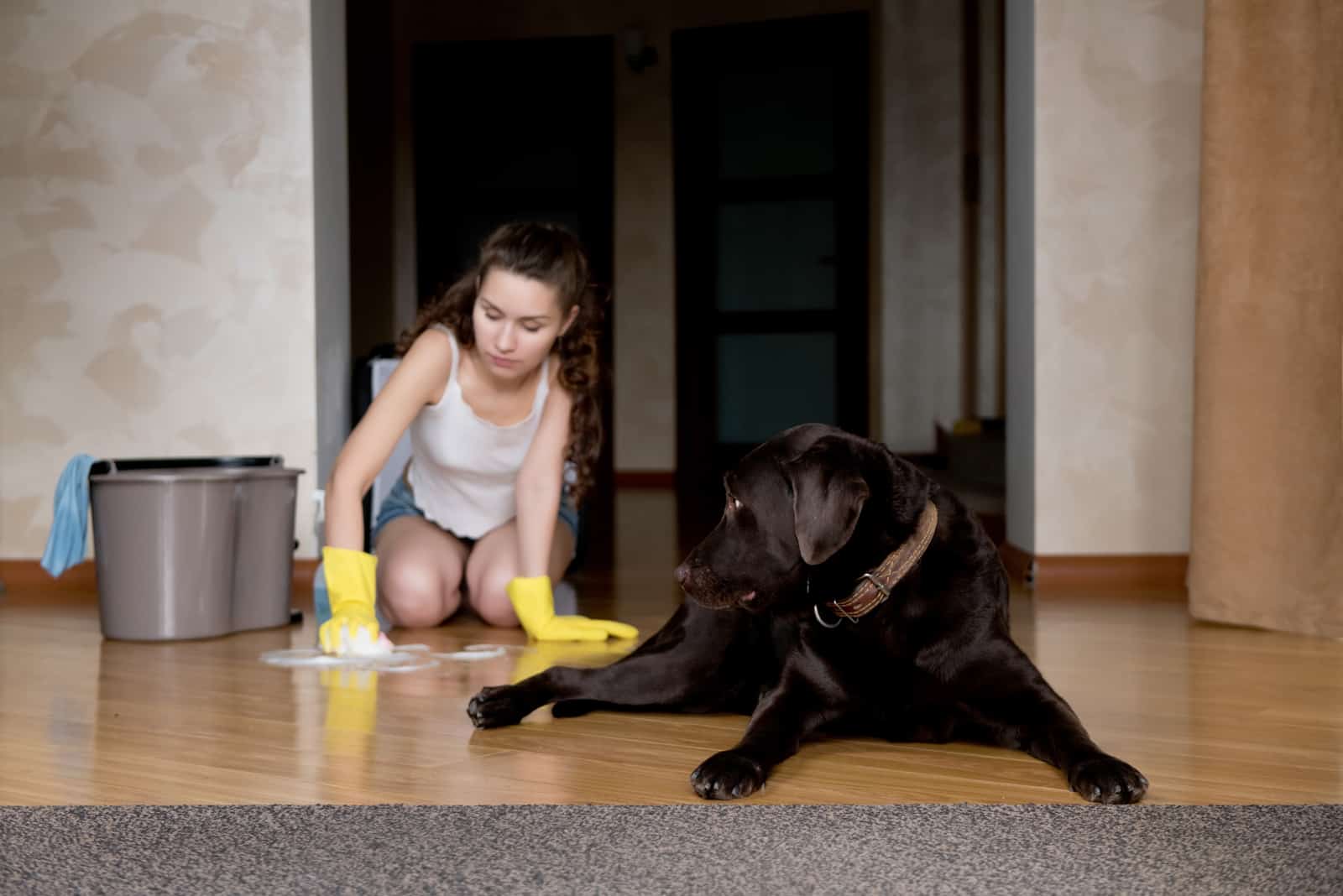
So, are you clear on why puppy diarrhea at night happens?
I bet a lot of you dog owners didn’t realize that diarrhea can be caused not only because a dog ate something, but because other factors are affecting your dog.
Bacterial infections, viruses, IBD, allergies, parasites, stress…
They all cause puppy diarrhea.
Of all these diarrhea causes, I have to point out that stress is something you can have an impact on.
Sure, we can affect our dog’s diet, too, but a lot of us don’t realize how important it is to keep our puppies away from stressful situations.
We live in a hectic era where everything seems to be a stress trigger. Imagine what continuous stressful stimulation might do to your puppy.
Diarrhea at night is just the tip of the iceberg!
Once you get a puppy, you must realize that you’re responsible for another living being. You must take care of your dog’s health like you do your own because puppies don’t know better. They will find eating dead birds funny, but it’s very far from funny!
The next time your dog eats something bad, trace back your steps and find out what he ate. That could save you a lot of trouble and help you react in the proper way.
We can all agree: puppy diarrhea at night isn’t something pretty.
Let’s not make that happen… ever.
Related article: How To Make A Dog Throw Up

